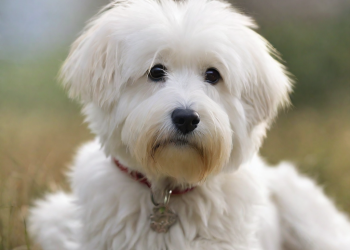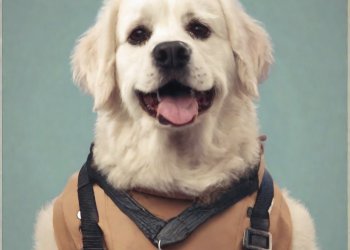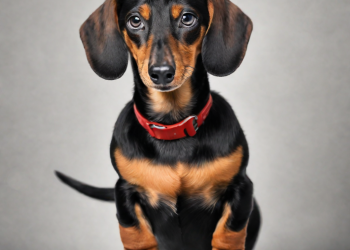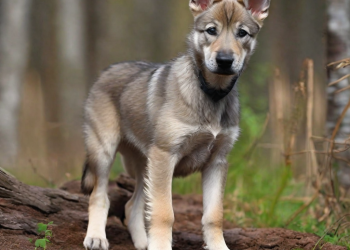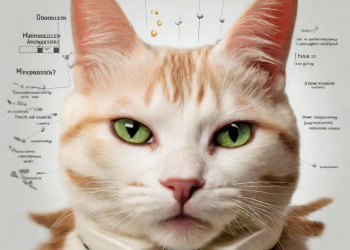Parvovirus in vaccinated dogs: Everything you need to know
Having researched parvovirus in vaccinated dogs, I can say that it is a highly contagious and potentially fatal disease. It is important to know the symptoms, how it is transmitted and the importance of vaccination to protect our dogs. In addition, it is essential to follow care and preventive measures to avoid the spread of the virus in case one of our dogs is affected. Read on to learn more about parvovirus in vaccinated dogs!
What is parvovirus in vaccinated dogs?
Parvovirus is a highly contagious disease that affects dogs, especially puppies. Although vaccination can prevent the disease, it is important to know more about it to properly protect your pet.
II. How to prevent parvovirus in vaccinated dogs?
The best way to protect your dog against parvovirus is through vaccination. Below are some important measures to consider to prevent parvovirus in vaccinated dogs:
- Importance of vaccination in dogs: Vaccination is the most effective way to prevent parvovirus in dogs. It is important to follow the vaccination schedule recommended by your veterinarian to ensure adequate protection for your dog.
- Types of parvovirus vaccines in dogs: There are two types of vaccines available to prevent parvovirus in dogs:
- Monovalent vaccines: These vaccines only protect against parvovirus and are recommended for dogs at higher risk of exposure.
- Multipurpose vaccines: These vaccines protect against multiple diseases, including parvovirus, and are recommended for most dogs.
- Recommended age for vaccination: Puppies should receive their first parvovirus vaccine at 6-8 weeks of age, followed by boosters every 3-4 weeks until they are 16 weeks old. Adult dogs should receive annual boosters to maintain their protection against parvovirus.
- Vaccination Frequency: The frequency of parvovirus vaccinations may vary depending on your dog’s age and health. Consult your veterinarian to determine the best vaccination schedule for your dog.
- Vaccination Effectiveness: Parvovirus vaccines are highly effective in preventing the disease in vaccinated dogs. However, they do not offer 100% protection, so it is important to follow other preventive measures to protect your dog.
Remember that vaccination against parvovirus in dogs is essential to keep your pet healthy and protected against this highly contagious disease. Don’t forget to follow your veterinarian’s recommendations and take additional steps to protect your dog against parvovirus.
III. What to do if my dog is already vaccinated against parvovirus?
If your dog has already been vaccinated against parvovirus, it is important to take a few steps to ensure he is protected and prevent the spread of the disease. Below are some common questions and recommendations for owners of dogs vaccinated against parvovirus.
A. Can a dog vaccinated against parvovirus get the disease?
Although vaccination is the best way to protect your dog against parvovirus, it is not a 100% guarantee that he will not contract the disease. Some dogs may be more susceptible to the virus or may not respond adequately to the vaccine. However, vaccination is still the best way to prevent the disease and reduce the severity of symptoms should your dog become infected.
B. What to do if my dog has been exposed to parvovirus?
If your dog has been in contact with a dog infected with parvovirus, it is important to take precautionary measures to prevent the disease from spreading. Some recommendations include:
- Keep your dog away from other infected dogs or from areas where parvovirus cases are known to occur.
- Wash your hands thoroughly after touching an infected dog.
- Wash and disinfect any objects or surfaces that have been in contact with an infected dog.
C. How do I know if my dog is protected against parvovirus?
The best way to know if your dog is protected against parvovirus is through a blood test that measures antibody levels against the virus. This is known as an antibody titer test and can determine if your dog has adequate protection against parvovirus. Check with your veterinarian to see if this test is right for your dog.
D. Is it necessary to revaccinate my dog against parvovirus?
Most parvovirus vaccines have a duration of protection of 3 years. However, in some cases, it may be necessary to revaccinate your dog before that period. For example, if your dog has been exposed to parvovirus or if he lives in an area with a high risk of infection, your veterinarian may recommend an annual revaccination. Always follow your veterinarian’s recommendations regarding the frequency of parvovirus vaccinations for your dog.
Remember that vaccination is the best way to protect your dog against parvovirus and prevent the spread of the disease. In addition to vaccination, it is also important to follow good hygiene practices and avoid contact with infected dogs to protect your dog from this serious disease.
IV. What happens if my dog is not vaccinated against parvovirus?
If your dog is not vaccinated against parvovirus, it is important that you take steps to protect him against this highly contagious disease. Below are some key points to keep in mind:
A. Risks of not vaccinating a dog against parvovirus
- Parvovirus in unvaccinated dogs can be fatal.
- Unvaccinated dogs are at higher risk of contracting the disease and can suffer serious complications.
- Parvovirus treatment in unvaccinated dogs can be more expensive and time-consuming.
B. Can an unvaccinated dog get parvovirus?
Yes, unvaccinated dogs can contract parvovirus if they come into contact with the virus. Parvovirus is highly contagious and can spread through contact with infected feces or other sick dogs.
C. How to treat an unvaccinated dog that has contracted parvovirus?
If your dog is not vaccinated and has contracted parvovirus, it is important that you take him to the vet immediately. Treatment may include hospitalization, medications, and fluid therapy to help fight the infection and prevent dehydration.
D. Is it possible to vaccinate a dog that has already contracted parvovirus?
While vaccination is the best way to prevent parvovirus in dogs, it is also possible to vaccinate a dog that has already contracted the disease. However, it is important to consult with your veterinarian before administering any vaccine to a sick dog.
Remember that the best way to protect your dog against parvovirus is through vaccination. If your dog is not vaccinated, it is important that you take him to the vet as soon as possible to receive the necessary vaccinations. Additionally, it is essential to follow appropriate preventive measures to prevent the spread of parvovirus in vaccinated and unvaccinated dogs.
V. What should I do after vaccinating my dog against parvovirus?
A. Care after vaccination against parvovirus in dogs
– Observe the dog for possible adverse reactions to the vaccine
– Keep the dog in a calm and safe environment. stress free
– Provide fresh water and a healthy diet
B. When is it safe to take my dog outside after vaccination?
– It depends on the age of the dog and the type of vaccine administered
– In general , it is recommended to wait at least a week before taking the dog to public places
C. What precautions should I take after vaccinating my dog against parvovirus?
– Avoid contact with sick or unvaccinated dogs
– Maintain good hygiene and cleanliness at home
– Do not expose the dog to stressful situations or sudden changes in its routine
D. How do I know if the parvovirus vaccine has been effective in my dog?
– Vaccination does not guarantee 100% protection against parvovirus
– However, , if the dog has been vaccinated correctly and has received regular boosters, it is less likely to contract the disease
– If the dog has been exposed to parvovirus and has not developed the disease, it is likely that the vaccine has been effective in protecting against the virus.VI. Other care to protect your dog against parvovirus
In addition to vaccination, there are other steps you can take to protect your dog against parvovirus. These include:
- Maintain good hygiene and cleanliness at home, especially in areas where your dog spends a lot of time.
- Avoid contact with infected or unknown dogs.
- Provide an adequate and balanced diet to strengthen your dog’s immune system.
- Visit the veterinarian regularly for checkups and monitoring of your dog’s health.
These measures can help prevent your dog’s exposure to parvovirus and strengthen his immune system to fight the disease if he is exposed.
Remember that even if your dog is vaccinated against parvovirus, it is important to follow these preventive measures to keep him healthy and protected.
Additionally, if you have more than one dog at home, it is important to take extra steps to protect the others in case one of them contracts parvovirus.
Some additional recommendations include:
- Separate the sick dog from the others to prevent the spread of the virus.
- Wash and disinfect any object or surface that has been in contact with the sick dog.
- Closely monitor other dogs in the home and be alert for any symptoms of parvovirus.
- Consult your veterinarian about the need to vaccinate other dogs at home against parvovirus.
Remember that prevention is the best way to protect your dog against parvovirus. With proper vaccination and these preventive measures, you can help keep your dog healthy and protected against this dangerous disease.
VII. What to do if my dog has been diagnosed with parvovirus despite being vaccinated?
A. How is parvovirus diagnosed in dogs?
Parvovirus in dogs can be diagnosed through different methods, including:
- Physical exam and symptoms: The veterinarian may perform a physical exam on the dog and look for signs of parvovirus infection, such as vomiting, diarrhea, and loss of appetite.
- Laboratory tests: Blood and fecal tests can be performed to detect the presence of the virus in the dog’s body.
- Imaging Tests: In some cases, x-rays or ultrasounds may be performed to evaluate the condition of the dog’s gastrointestinal tract.
B. Treatment of parvovirus in vaccinated dogs
If a dog vaccinated against parvovirus is diagnosed with the disease, it is important that he receive immediate treatment to increase his chances of recovery. Treatment may include:
- Fluid therapy: The dog may need to be hydrated through an intravenous line to replace fluids and electrolytes lost due to diarrhea and vomiting.
- Medications: The veterinarian may prescribe medications to control symptoms, such as antiemetics to reduce nausea and vomiting, and antibiotics to prevent secondary infections.
- Supportive therapy: The dog may need supportive therapy to help strengthen its immune system and fight the infection, such as vitamin supplements and probiotics.
C. Special care for dogs with parvovirus
Dogs with parvovirus need special care to help them recover and prevent the spread of the disease. Some recommendations include:
- Isolation: It is important to keep the dog in an area separate from other dogs to prevent the spread of the virus.
- Hygiene: Rigorous hygiene measures should be taken when handling the infected dog, such as washing hands and disinfecting any surfaces that have been in contact with it.
- Rest and adequate nutrition: The dog should rest and receive adequate nutrition to help its body fight the infection.
D. Can a vaccinated dog die from parvovirus?
Although vaccination against parvovirus in dogs is highly effective, it is not foolproof. In rare cases, a vaccinated dog can contract the disease and in some cases it can be fatal. However, vaccination remains the best way to prevent infection and reduce the risk of serious complications.
VIII. What happens if my dog does not respond to parvovirus treatment?
A. Why do some dogs not respond to parvovirus treatment?
Some dogs may not respond to parvovirus treatment due to several factors, such as:
- A weakened immune system due to other diseases or health conditions.
- A strain of parvovirus that is more resistant to the vaccine that has been administered.
- Inadequate or incomplete treatment.
- A secondary infection that complicates treatment.
B. Alternative Treatment Options for Dogs with Parvovirus
If a dog does not respond to conventional parvovirus treatment, your veterinarian may recommend alternative options, such as:
- Intravenous fluid therapy to combat dehydration and maintain electrolyte balance.
- Medicines to control symptoms, such as antiemetics to treat nausea and vomiting.
- Blood transfusions to replace blood cells damaged by the virus.
- Plasma therapy to provide additional antibodies and help the immune system fight infection.
C. How to prevent parvovirus recurrence in dogs?
To prevent the recurrence of parvovirus in vaccinated dogs, it is important to follow the veterinarian’s recommendations and take preventive measures, such as:
- Keep the dog away from other infected dogs or from areas where there have been parvovirus outbreaks.
- Follow an appropriate vaccination schedule and ensure all doses are administered on time.
- Maintain good hygiene and cleanliness in the home and in the area where the dog relieves itself.
- Feed the dog a balanced and nutritious diet to strengthen its immune system.
- Carry out regular checkups with the veterinarian to detect any signs of illness and treat them in time.
IX. What to do if I have more than one dog at home?
A. How to protect other dogs at home if one of them has contracted parvovirus?
– Keep the infected dog isolated from other dogs at home
– Clean and disinfect regularly check areas where the infected dog has been
– Avoid direct contact between infected and non-infected dogs
B. Is it necessary to vaccinate all dogs at home against parvovirus?
– Yes, it is recommended to vaccinate all dogs at home to prevent the spread of the virus
– Even if a dog has already been vaccinated, it is important to keep its vaccinations up to date for continued protection
C. How to prevent the spread of parvovirus between dogs at home?
– Maintain good hygiene and cleanliness at home
– Avoid contact with infected dogs outside the home
– Feed dogs an appropriate diet to strengthen their immune system
– Visit the veterinarian regularly for check-ups and monitoring of the dog’s health
Parvovirus in vaccinated dogs:
– Although vaccination is the best way to prevent parvovirus in dogs, it is not a guarantee of 100% protection.
– It is important to follow care and preventive measures to protect vaccinated dogs against parvovirus.
– If a vaccinated dog has been exposed to the virus, it is important to take immediate measures to prevent it from spreading. spread to other dogs at home.
– Vaccination is an effective way to protect dogs against parvovirus, but it is also important to maintain good hygiene and avoid contact with infected dogs outside the home .
Parvovirus in vaccinated dogs: How to protect your best friend
Parvovirus is a highly contagious disease that primarily affects dogs, especially puppies. Fortunately, there is an effective way to prevent this disease: vaccination. In this article, we will talk about the importance of vaccination against parvovirus in dogs and how to protect your best friend from this disease.
What is parvovirus in dogs?
- Definition of parvovirus
- Symptoms of parvovirus in dogs
- How parvovirus is transmitted in dogs
- Importance of vaccination against parvovirus in dogs
How is parvovirus prevented in dogs?
- Importance of vaccination in dogs
- Types of vaccines against parvovirus in dogs
- Monovalent vaccines
- Multipurpose vaccines
- Recommended age for parvovirus vaccination in dogs
- Frequency of parvovirus vaccines in dogs
- Effectiveness of vaccination against parvovirus in dogs
What to do if my dog is already vaccinated against parvovirus?
- Can a dog vaccinated against parvovirus get the disease?
- What to do if my dog has been exposed to parvovirus?
- How do I know if my dog is protected against parvovirus?
- Does my dog need to be revaccinated against parvovirus?
What happens if my dog is not vaccinated against parvovirus?
- Risks of not vaccinating a dog against parvovirus
- Can an unvaccinated dog get parvovirus?
- How to treat an unvaccinated dog that has contracted parvovirus?
- Is it possible to vaccinate a dog that has already contracted parvovirus?
What should I do after vaccinating my dog against parvovirus?
- Care after vaccination against parvovirus in dogs
- When is it safe to take my dog outside after vaccination?
- What precautions should I take after vaccinating my dog against parvovirus?
- How do I know if the parvovirus vaccine has been effective in my dog?
What other precautions should I take into account to protect my dog against parvovirus?
- Hygiene and cleaning at home
- Avoid contact with infected dogs
- Proper nutrition to strengthen the dog’s immune system
- Visit the veterinarian regularly for checkups and monitoring of the dog’s health
What to do if my dog has been diagnosed with parvovirus despite being vaccinated?
- How is parvovirus diagnosed in dogs?
- Parvovirus treatment in vaccinated dogs
- Special care for dogs with parvovirus
- Can a vaccinated dog die from parvovirus?
What happens if my dog does not respond to parvovirus treatment?
- Why do some dogs not respond to parvovirus treatment?
- Alternative Treatment Options for Dogs with Parvovirus
- How to prevent the recurrence of parvovirus in dogs?
What should I do if I have more than one dog at home?
- How to protect other dogs at home if one of them has contracted parvovirus?
- Do all dogs at home need to be vaccinated against parvovirus?
- How to prevent the spread of parvovirus between dogs at home?
Conclusions
- Summary of key points about parvovirus in vaccinated dogs
- Importance of vaccination against parvovirus in dogs
- Care and preventive measures to protect dogs against parvovirus
- Final recommendations for owners of dogs vaccinated against parvovirus

